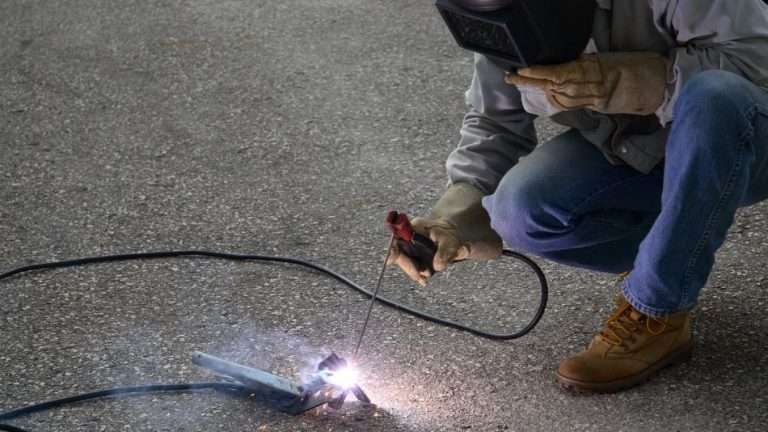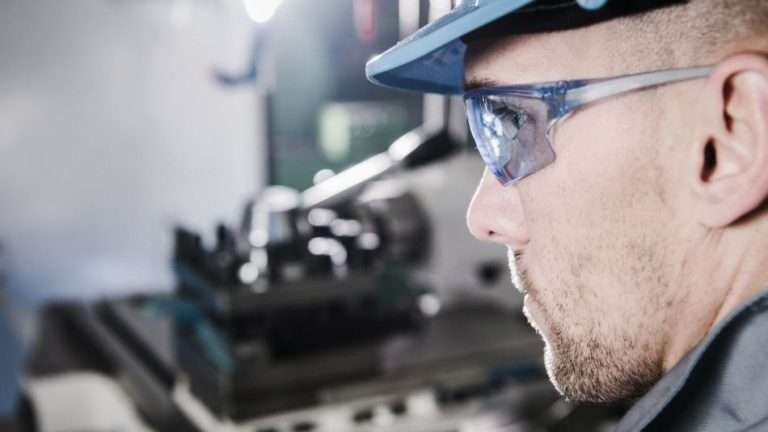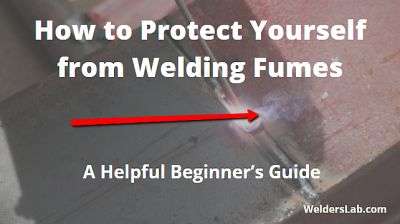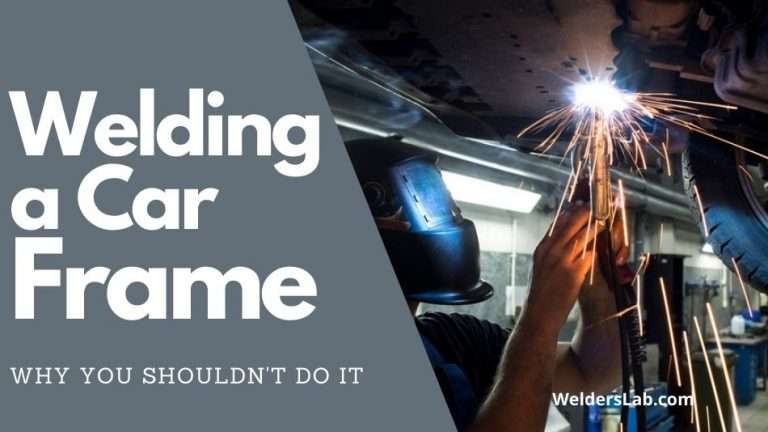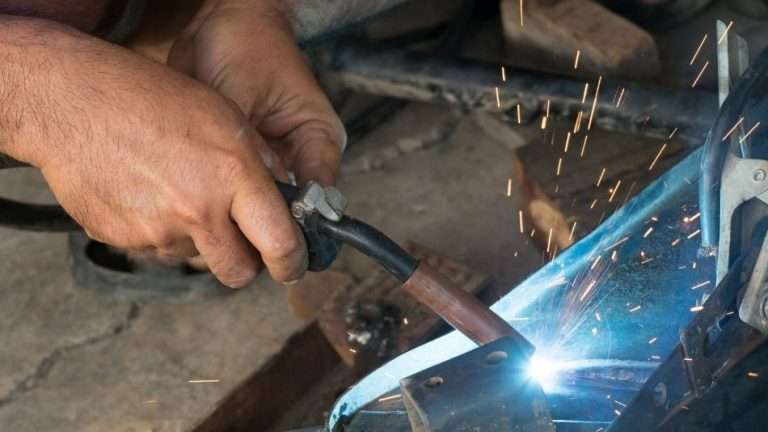Is It Illegal to Weld in Your Garage – Home Welding Guide
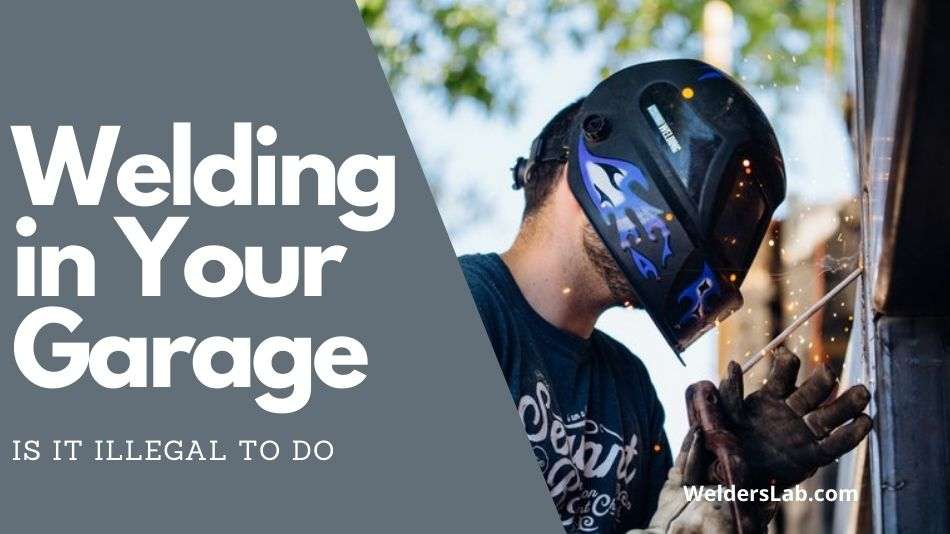
When people set up a home welding workshop they inevitably come to the question, “Is it legal to weld in your garage?” I am here to help you understand any legal issues you need to consider.
I am also here to focus on the safety concerns of setting up a home welding operation. It is easy to get lazy. One wrong move and you could burn your garage to the ground. Or worse, cause damage to life and limb.
Yes, it is legal to weld in your garage. However, it can be very dangerous if not set up properly by removing all flammable items from aerosol cans, gas containers, to newspapers and oily rages. Consider getting nonflammable barriers to keep weld sparks away from these items.
In this article, we are going to talk about how to set up a welding shop in your garage. But first, we are going to explain the legality of having a welding shop in your home garage. After that, we will cover some of the most important safety precautions you need to be aware of.
So, let’s take a deep dive into how to weld in your garage.
Is it legal to weld in your garage?
Yes, it is perfectly legal to weld in your garage. If you are concerned about your specific area, maybe check with your local fire department or safety manager.
It is generally okay for you to weld in your garage, but your fire department or safety manager can give you some tips, clarity, and resources to help you get set up.
You might run into legal troubles if you start to run a welding business. There could be zoning laws as well as public safety laws you must contend with. You may need permits or inspections. The best bet is to work on small, personal projects, and keep it as a hobby.
It is not an ideal place from which to run a welding business in the first place. Unless you have a large, warehouse-style garage and modern, updated safety protocols in place, likely, you will not be equipped to operate as a welding business.
That is especially true if you live in a residential area. Most people in your community will probably not want a fully functioning weld shop in their neighborhood.
Set up for safety
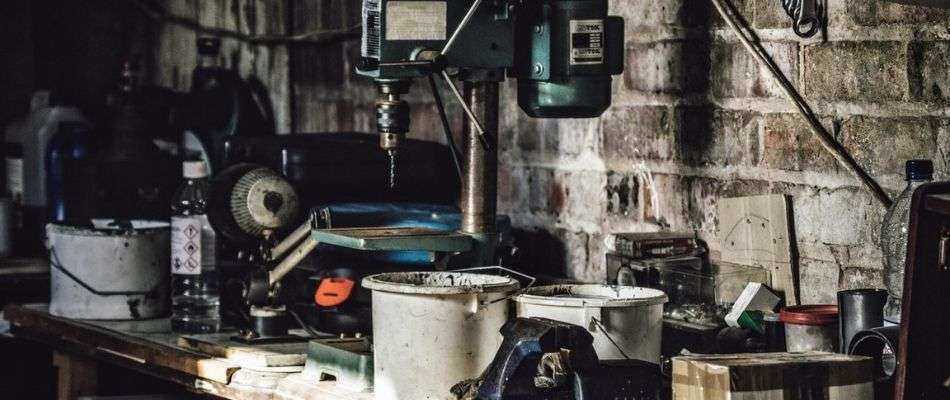
Most garages are small. They can be hazardous on their own. When setting up a garage for welding you must be ready to meet the safety demands.
Even if you already own a welding machine and you are simply upgrading to a new system, you should still make sure you are fully aware of all precautions.
And always remember to read and review your equipment owner’s manual as well as the safety labels on your welding equipment and materials.
Make sure your welding equipment is on a clean, level surface. Keep flammable materials out of the area. Flammable materials like paper, rags, gasoline, oil, and other chemicals should be stored away from your primary welding area.
A stray spark is all it takes to set these things alight and that could easily turn into an out of control blaze.
I know of a father and son who were welding in their garage when a stray spark landed on a pile of oily rags. They had been cautious and thought the rags were far enough out of the way. By the time they realized there was a fire it was too late. They both escaped unharmed, but most of the garage went up in flames.
It is a good idea to have a metal cabinet to store any items that could easily catch flame. Label the cabinet FLAMMABLE and make sure anyone who is welding in your garage follows your established safety protocols.
It is equally important to have the proper equipment. Always use hoses, tanks, safety gear that are designed for welding. Follow their instructions to the letter.
Another important thing to consider is ventilation. Make sure you have a well-ventilated workspace. A large box fan, open doors, open windows, and, if you do a lot of welding, a fume extractor are all worthy investments.
Dust, fumes, and particles that come from welding can all be dangerous if inhaled. Keeping a well-ventilated workshop and paying close attention to how you move around when welding will keep you and everyone else safe and secure.
How to set up and weld in your garage

As stated in the previous section, make sure all flammable materials are stored safely away from the welding area. A stray spark could create an explosion and people could get badly hurt or even killed.
Take every precaution to ensure safety. Always make sure safety is the top priority.
#1 Setup Welding Curtains
It is a good idea to set up weld curtains in the area where you work. Weld curtains can help keep the noise down as well as set up a clearly defined welding area.
Anyone outside that area will be protected from excessive noise and flying sparks. You, as the welder, have safety gear. Anyone who is visiting your garage while you are welding does not have the benefit of personal safety gear.
Welding curtains act as a quality substitute. It is possible to also use plywood if it is properly prepared with flame-resistant materials. Your local hardware store can help you with this.
#2 Setup Your Work Area
Set up your welder on a level and clean surface. Be sure to review your safety manual and take note of all warning labels on the machine. Make sure all the connecting cables, hoses, and fittings are clean and in serviceable condition.
Look for exposed components or anything in disrepair. If you find something that is on in good condition have it repaired or replaced immediately.
#3 Remove Fumes
Before you start welding turn on your box fan and fume extractor (if you have one.) Make sure your ventilation pathways are clear. Open windows and doors that allow fresh air in and toxic air out.
Be sure that your fans aiding in pulling fumes away from the welding area and never through it. Depending on the type of welding you are doing you may be able to wear a disposable mask to cover your nose and mouth. An N-95 mask will greatly reduce the danger to your lungs.
Personal Safety Equipment For Your Garage
Since your protection is important let’s take some time to consider the protective equipment you should be using to keep yourself safe. Welding produces sparks, blinding rays, and molten spatter that is highly dangerous.
You could severely damage your eyes, burn your flesh, and even set yourself on fire if you are not wearing the proper PPE (personal protective equipment.)
Make sure you are wearing fire-resistant clothes
Do not weld in shorts, short sleeve shirts, or sandals. Make sure you button your shirt cuffs and the pockets. A stray spark could easily find its way to your skin if caught in one of those.
Were long pants without a cuff. Any loose fitting or open clothing could not only expose your skin to a hot piece of molten debris, but it could also catch fire under the right circumstances.
Here are a few buyers guides to consider:
Wear proper gloves and footwear
Leather shoes with high tops like work boots are ideal. Cloth or canvas shoes can easily catch fire.
From time to time, pieces of molten debris will fall away from a weld and if you step on it with a thin, canvas shoe it could burn right through and cause permanent damage.
Equally as important is hand protection. It is a good idea to have gloves that are designed for welding. A regular shop or mechanic’s gloves will not do.
Here are a few buyers guides to consider:
Eye Protection
According to research, about 2000 U.S. citizens experience eye damage that requires medical treatment every year. Most of those injuries are from small particles flying into the eye and from thermal burns.
If you do not have proper eye protection while welding both things can happen to you. Even a small exposure to the radiation created while welding can create what we call arc flash. Long-term or repeated exposure can cause permeant eye damage and even blindness.
Make sure you are wearing the proper welding helmet for the type of welding you are doing. Make sure you are also wearing safety glasses as an added precaution.
This is important even if you are only doing a quick weld on a small project. If you weld using different techniques, materials, and specifications, you may want to consider an auto-darkening helmet.
They come in a variety of price ranges and have features like speed switching, advanced sensors, and other built-in protections. Make sure your welding helmet complies with national regulations and standards.
Here are a few buyers guides to consider:
Ready, Set, Weld
Now that you are up to date on legality, safety, and equipment. It is time to get to work.
Welding can be a fun and rewarding hobby. It can also be a useful tool that saves you time and money on many small projects.
Stay safe, operate within the law, and you can take what you know about how to weld in your garage to whatever level you like.

